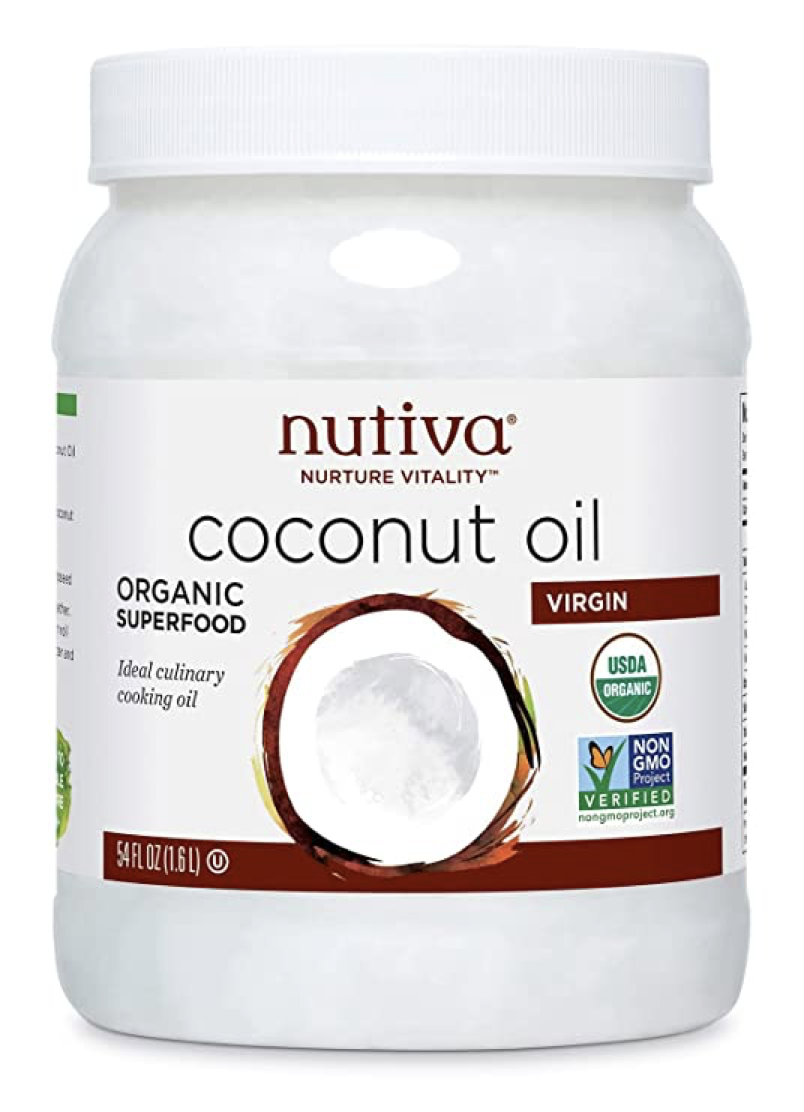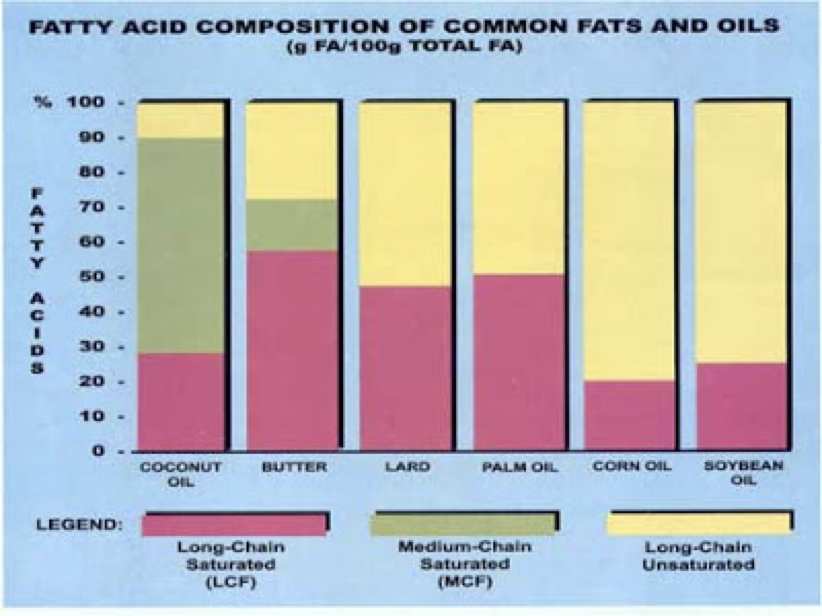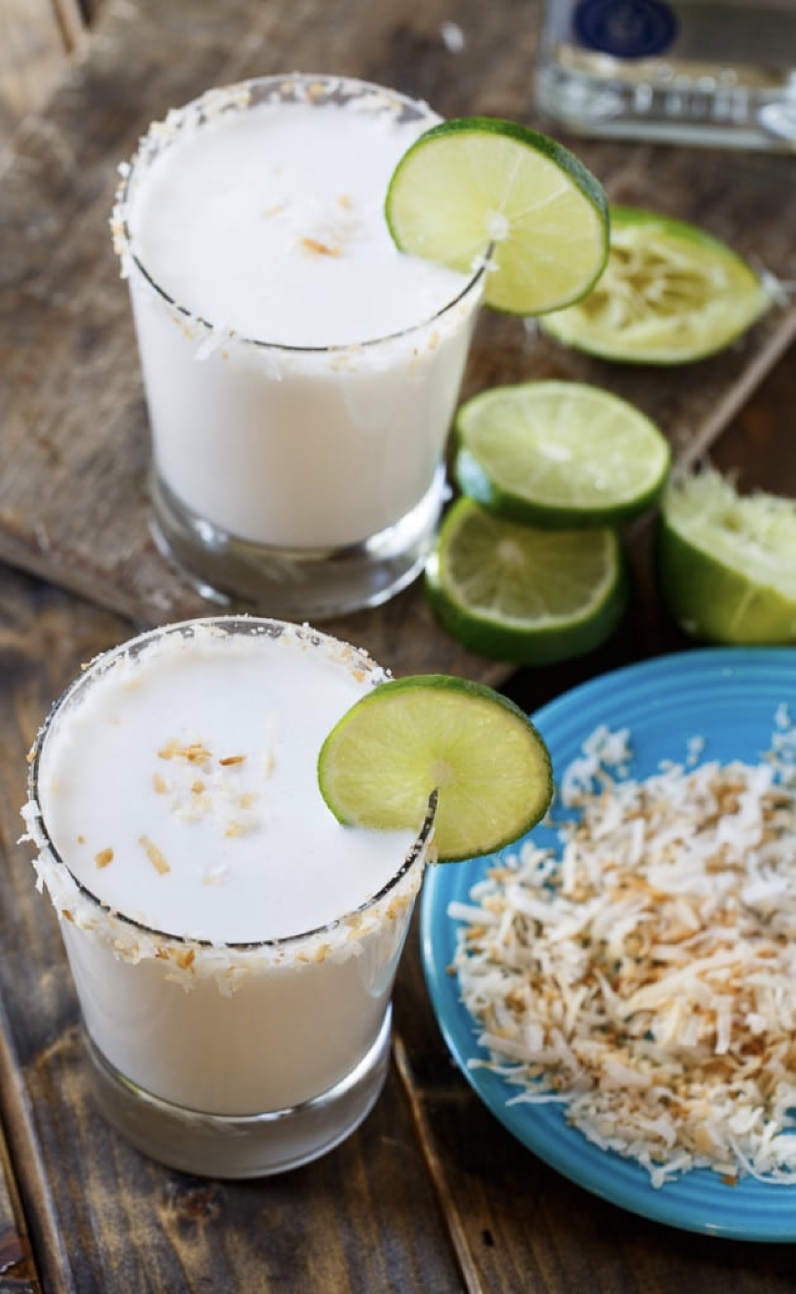Great News: This Oil Can Help Diabetes!
Latest science news tells us that America is suffering from a plague of diabetes today. All thanks to our entrenchment in the nutrient-deficient western diet. While that’s the bad news, the great news is that a certain oil can help with this.
That oil is coconut oil. It impacts blood sugar levels, which can go through a wild swing based on the food eaten. When blood sugar levels spike, medication is often the solution to regulating blood sugar levels.

But some people have opted to instead take 2-3 tablespoons of coconut oil. The coconut oil acts as a blood sugar regulator, bringing blood sugar levels down to appropriate levels in as little as 30 minutes. While I’m in NO WAY suggesting anyone quit medications, I am suggesting seriously considering including this oil in the daily diet. It has so many benefits that doing so can’t hurt.
Once mistakenly believed to be unhealthy because of its high saturated fat content, it is now described as "the healthiest oil on earth." What makes coconut oil so good? And what makes it different from all other oils, especially other saturated fats?
Here comes the science: The difference is in the fat molecule. All fats and oils are composed of molecules called fatty acids. There are two methods of classifying fatty acids. You are probably familiar with the first, which is based on saturation. You have saturated fats, monounsaturated fats, and polyunsaturated fats.
Another classification system is based on molecular size or length of the carbon chain within each fatty acid. Fatty acids consist of long chains of carbon atoms with hydrogen atoms attached. In this system you have short-chain fatty acids (SCFA), medium-chain fatty acids (MCFA, diagram shown), and long-chain fatty acids (LCFA). Coconut oil is composed predominately of medium-chain fatty acids (MCFA), also known as medium-chain triglycerides (MCT).

The vast majority of fats and oils in our diets, whether they are saturated or unsaturated or come from animals or plants, are composed of long-chain fatty acids (LCFA). 98% to 100% of all the fatty acids we consume are LCFA, not a helpful pattern.
The size of the fatty acid is extremely important because our bodies respond to and metabolize each fatty acid differently depending on its size. So, the physiological effects of MCFA in coconut oil are distinctly different from those of LCFA more commonly found in today’s western diet.
To recap: The saturated fatty acids in coconut oil are predominately medium-chain fatty acids, while both the saturated and unsaturated fat found in meat, milk, eggs, and plants (including most vegetable oils) are composed of LCFA.
This is a BIG DEAL and important to remember: MCFAs do not have any negative effect on cholesterol, they help protect against heart disease, and they help lower the risk of atherosclerosis. While mother’s milk contains this type of fatty acid, there are only a few other good dietary sources of MCFA. Coconut oil is one of the very best (with palm kernel oil being another).
So simply replacing polyunsaturated vegetable oils with pure, extra virgin coconut oil would be an effective place to start with helping diabetes.
But there’s more. Everything about the coconut is POTENT! It’s known for its ability to kill off harmful parasites, bacteria and even viruses. Thus, coconut oil, meat, and cream also heal and strengthen the immune system—a real boon to anyone struggling with diabetes or other health conditions.

In spite of all these benefits, there is, however, an anti-coconut campaign out there. In the food industry, it’s all about market share, and no commercial vegetable oil producers want to lose any to the coconut producers. For more information and a detailed look at the health benefits and anti-saturated fat agenda, please visit www.coconutoil.com.

The fact is, though, there are ethnicities that keep their youthfulness and health much longer than western populations. Today’s science is showing this is related to a coconut-based diet. So, the bottom line? We can learn a lot from the dietary habits of other cultures, and thank goodness the days of avoiding coconut oil are over!
Now to get us started, here is a delicious recipe for a coconut cream drink, found on ORIGINAL LIVING COCONUT (www.originallivingcoconut.com).

4 tablespoons coconut cream
2 tablespoons freshly squeezed lime juice
2 tablespoons raw honey
6 ounces sparkling mineral water
ice to taste
Directions:
That oil is coconut oil. It impacts blood sugar levels, which can go through a wild swing based on the food eaten. When blood sugar levels spike, medication is often the solution to regulating blood sugar levels.

But some people have opted to instead take 2-3 tablespoons of coconut oil. The coconut oil acts as a blood sugar regulator, bringing blood sugar levels down to appropriate levels in as little as 30 minutes. While I’m in NO WAY suggesting anyone quit medications, I am suggesting seriously considering including this oil in the daily diet. It has so many benefits that doing so can’t hurt.
Once mistakenly believed to be unhealthy because of its high saturated fat content, it is now described as "the healthiest oil on earth." What makes coconut oil so good? And what makes it different from all other oils, especially other saturated fats?
Here comes the science: The difference is in the fat molecule. All fats and oils are composed of molecules called fatty acids. There are two methods of classifying fatty acids. You are probably familiar with the first, which is based on saturation. You have saturated fats, monounsaturated fats, and polyunsaturated fats.
Another classification system is based on molecular size or length of the carbon chain within each fatty acid. Fatty acids consist of long chains of carbon atoms with hydrogen atoms attached. In this system you have short-chain fatty acids (SCFA), medium-chain fatty acids (MCFA, diagram shown), and long-chain fatty acids (LCFA). Coconut oil is composed predominately of medium-chain fatty acids (MCFA), also known as medium-chain triglycerides (MCT).

The vast majority of fats and oils in our diets, whether they are saturated or unsaturated or come from animals or plants, are composed of long-chain fatty acids (LCFA). 98% to 100% of all the fatty acids we consume are LCFA, not a helpful pattern.
The size of the fatty acid is extremely important because our bodies respond to and metabolize each fatty acid differently depending on its size. So, the physiological effects of MCFA in coconut oil are distinctly different from those of LCFA more commonly found in today’s western diet.
To recap: The saturated fatty acids in coconut oil are predominately medium-chain fatty acids, while both the saturated and unsaturated fat found in meat, milk, eggs, and plants (including most vegetable oils) are composed of LCFA.
This is a BIG DEAL and important to remember: MCFAs do not have any negative effect on cholesterol, they help protect against heart disease, and they help lower the risk of atherosclerosis. While mother’s milk contains this type of fatty acid, there are only a few other good dietary sources of MCFA. Coconut oil is one of the very best (with palm kernel oil being another).
So simply replacing polyunsaturated vegetable oils with pure, extra virgin coconut oil would be an effective place to start with helping diabetes.
But there’s more. Everything about the coconut is POTENT! It’s known for its ability to kill off harmful parasites, bacteria and even viruses. Thus, coconut oil, meat, and cream also heal and strengthen the immune system—a real boon to anyone struggling with diabetes or other health conditions.

In spite of all these benefits, there is, however, an anti-coconut campaign out there. In the food industry, it’s all about market share, and no commercial vegetable oil producers want to lose any to the coconut producers. For more information and a detailed look at the health benefits and anti-saturated fat agenda, please visit www.coconutoil.com.

The fact is, though, there are ethnicities that keep their youthfulness and health much longer than western populations. Today’s science is showing this is related to a coconut-based diet. So, the bottom line? We can learn a lot from the dietary habits of other cultures, and thank goodness the days of avoiding coconut oil are over!
Now to get us started, here is a delicious recipe for a coconut cream drink, found on ORIGINAL LIVING COCONUT (www.originallivingcoconut.com).

Creamy Coconut Drink
Ingredients:
4 tablespoons coconut cream
2 tablespoons freshly squeezed lime juice
2 tablespoons raw honey
6 ounces sparkling mineral water
ice to taste
Directions:
Add all ingredients to blender; blend well.
Recipe formatted with the Cook'n Recipe Software from DVO Enterprises.
Sources:
- www.amazon.com
- www.coconutresearchcenter.org
- www.goldenbarrell.com
- www.thefussybody.com
- www.spicysouthernkitchen.com
 Alice Osborne
Alice Osborne
Weekly Newsletter Contributor since 2006
Email the author! alice@dvo.com
